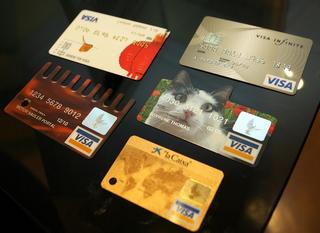Microsoft has asked the New Zealand government to implement strict regulations to protect online intellectual property
Published:
20 October 2001 y., Saturday
Microsoft has asked the New Zealand government to implement strict regulations to protect online intellectual property, including making Internet service providers (ISPs) responsible for taking down or blocking pirated material on the Internet.
The recommendations are contained in Microsoft's response to the New Zealand government's discussion paper on the Digital Technology and Copyright Act of 1994, a paper that seeks to update copyright laws for the Internet.
The Microsoft submission contains four main recommendations it believes should be included in any update to legislation in New Zealand.
First is the extension of copyright protection to "temporary copies" of digital music, movies, software, or books on the Internet.
Copyright owners are taking advantage of digital technology to change the rules of intellectual property, for example, providing time-limited copies of music or other multimedia, where traditionally consumers received a permanent copy when buying a work.
The wording of such an extension would be crucial, with Web pages threatening to be caught in copyright laws. Opening a Web page could be considered downloading a temporary copy, and so a breach of copyright.
Secondly, Microsoft wants New Zealand ISPs to be made responsible under the law for the removal of pirated material posted on the Internet by their subscribers. Microsoft says ISPs should have to "take down or block" infringing material.
The other recommendations cover the outlawing of software or hardware that can be used to circumvent copyright, and - naturally - harsher penalties for pirating software.
Šaltinis:
Newsbytes
Copying, publishing, announcing any information from the News.lt portal without written permission of News.lt editorial office is prohibited.
The most popular articles
Software company announced new structure_ of it_s business.
more »
 The iPhone's new “ATM Hunter” is a a free iPhone application built by MasterCard that allows users to quickly find the ATMs that are closest to them.
more »
The iPhone's new “ATM Hunter” is a a free iPhone application built by MasterCard that allows users to quickly find the ATMs that are closest to them.
more »
 In security breach cases last year, such as Hannaford Bros. supermarket and the card processing firm Heartland Payment Systems, cybercriminals gained access to millions of consumers' credit card details.
more »
In security breach cases last year, such as Hannaford Bros. supermarket and the card processing firm Heartland Payment Systems, cybercriminals gained access to millions of consumers' credit card details.
more »
 Ingenico, a provider of payment solutions, says contactless technology will split the retail market this year, improving sales figures for early adopters and costing those who shun the additional investment in this burgeoning technology.
more »
Ingenico, a provider of payment solutions, says contactless technology will split the retail market this year, improving sales figures for early adopters and costing those who shun the additional investment in this burgeoning technology.
more »
 Widevine Technologies today announced that the US Patent and Trademark Office has reconfirmed the validity of many claims of Widevine's U.S.
more »
Widevine Technologies today announced that the US Patent and Trademark Office has reconfirmed the validity of many claims of Widevine's U.S.
more »
 Nokia Corp., the world's largest maker of cell phones, is making a large investment in California-based Obopay Inc., a startup that's pushing person-to-person mobile-payments technology.
more »
Nokia Corp., the world's largest maker of cell phones, is making a large investment in California-based Obopay Inc., a startup that's pushing person-to-person mobile-payments technology.
more »
 The increasing amount of overlap and duplication of data, tasks and processes in their anti-fraud and anti-money laundering divisions is driving banks to seek synergies between compliance, risk management and security, according to a new report from Datamonitor.
more »
The increasing amount of overlap and duplication of data, tasks and processes in their anti-fraud and anti-money laundering divisions is driving banks to seek synergies between compliance, risk management and security, according to a new report from Datamonitor.
more »
 The total number of IPTV subscribers worldwide passed the 20mn mark at the end of 2008, according to new figures from Informa Telecoms & Media, taking into account both disclosed and estimated figures.
more »
The total number of IPTV subscribers worldwide passed the 20mn mark at the end of 2008, according to new figures from Informa Telecoms & Media, taking into account both disclosed and estimated figures.
more »
 The IPTV World Forum opened its doors this morning on a bright London day, and the mood was equally optimistic indoors, with the conference rooms packed for keynote presentations from Christopher Schläffer of Deutsche Telekom, Christophe Forax from the European Commission and the BBC's Richard Halton, charged with making Project Canvas a reality.
more »
The IPTV World Forum opened its doors this morning on a bright London day, and the mood was equally optimistic indoors, with the conference rooms packed for keynote presentations from Christopher Schläffer of Deutsche Telekom, Christophe Forax from the European Commission and the BBC's Richard Halton, charged with making Project Canvas a reality.
more »
 A new Gartner Inc. report suggests that financial fraud could drive consumers away from banks and into the arms of electronic payment systems, such as PayPal, that they perceive to be more secure.
more »
A new Gartner Inc. report suggests that financial fraud could drive consumers away from banks and into the arms of electronic payment systems, such as PayPal, that they perceive to be more secure.
more »
 In the last year this more than doubles the number of cards and devices in circulation around the world.
more »
In the last year this more than doubles the number of cards and devices in circulation around the world.
more »